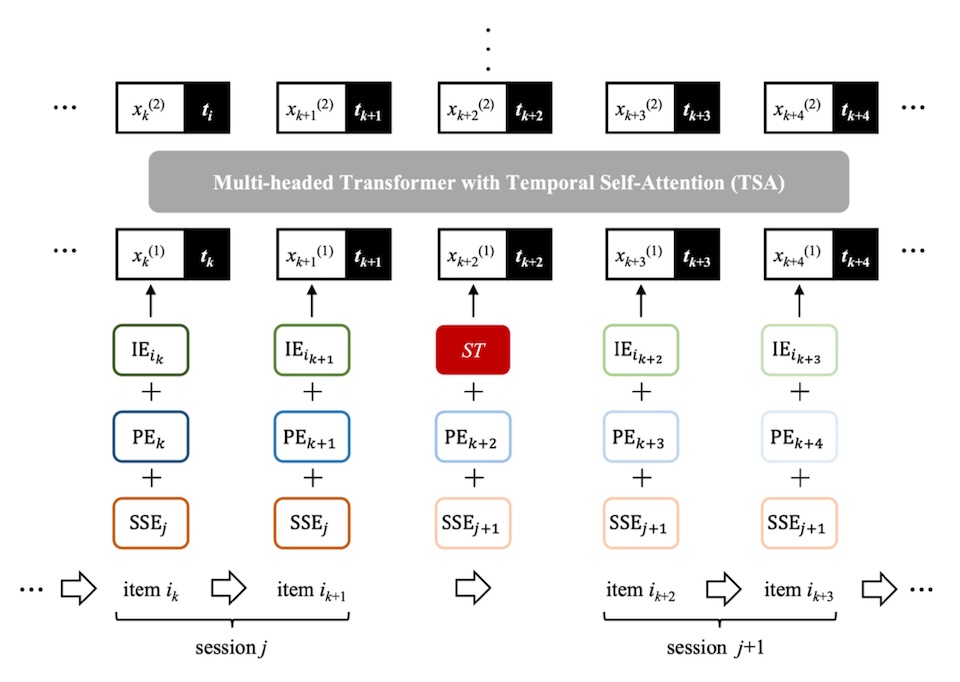
Title
Authors
Details
Abstract
In recommender systems, leveraging user interaction history as sequential information has recently led to significant performance improvements. However, in many online services, user interactions are often grouped into sessions that inherently share user preferences, requiring a distinct approach from conventional sequence representation techniques. Existing studies have introduced various methods to integrate session information into sequential recommendation models, but most rely on complex network structures, such as hierarchical networks, or introduce substantial additional parameters. In this paper, we revisit the importance of incorporating session information in sequential recommendation models. We propose three methods to enhance recommendation performance by effectively utilizing session information while minimizing additional parameter overhead in deep learning-based sequential recommendation models: session token, session segment embeddings, and temporal self-attention. The proposing methods are designed to be easily integrated into both RNN-based and attention-based models. We demonstrate the effectiveness of the proposed methods through extensive experiments on real-world recommendation datasets, achieving up to a 10% performance improvement with only 1% additional parameters.